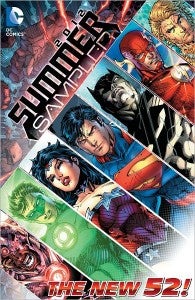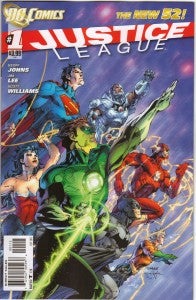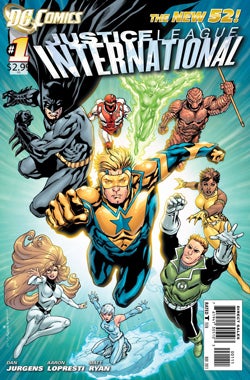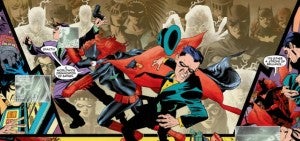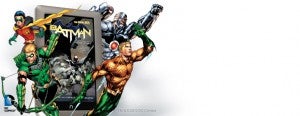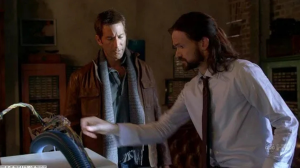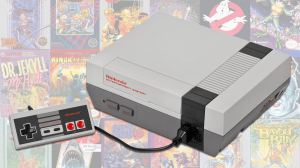Following last month’s surprise announcement that DC Entertainment was finally bringing its graphic novels and collected editions to Barnes & Noble’s Nook Color and Nook Tablet devices, it seemed an ideal time to take a look at a couple of DC’s recent releases, to see how well they interface with Nook and, by extension, how well they interact with digital readers in general.The answer, of course, is that there are some very nice features on Nook, but that not everything works the way you would hope. One particular problem is that since it’s formatted as a book reader, and doesn’t take the visual nature of comics into account, double-page spreads present a problem.That’s particularly problematic in one of the two books I bought—Batwoman vol. 1: Hydrology, featuring the stunning art of J.H. Williams III, which gets pretty badly beaten up in the Nook edition of the book since it’s got more double-page spreads than just about any other comic in the mainstream superhero market.The thing that inspired me to buy Batwoman, though (a title we’ll talk more about shortly) was the sampler book that DC and Barnes & Noble put together for Nook: DC Comics – The New 52 Summer Sampler, featuring the first issues of Justice League, Justice League International, Animal Man, Catwoman and Batman. It’s an interesting choice of titles, certainly, particularly in that it leaves off the mega-hit Action Comics and includes Justice League International, which of course will no longer exist after the second trade paperback.Justice League #1, written by Geoff Johns and drawn by Jim Lee and Scott Williams, was not only the launch title for The New 52 but is also the first thing you see when you open up your sampler on the Nook. And that was, right away, something that caused a little bit of a headache.Like ComiXology digital copies, the trade paperback collections include variant covers—or at least the ones printed in the trade paperbacks and hardcover collected editions. In the case of the New 52 titles, that means there are an awful lot of the “digital edition variants” and “second printing variants” at the top of each chapter. In the case of the summer sampler it isn’t particularly disruptive to the flow of the story, although I can see how it might be, particularly on a title like Justice League where as time wore on almost every issue had variants on top of variants. Still, if the double-page spreads were handled correctly in the digital collected editions, then it would be nice to know that there’s content in place to space the pages out properly if need be.

